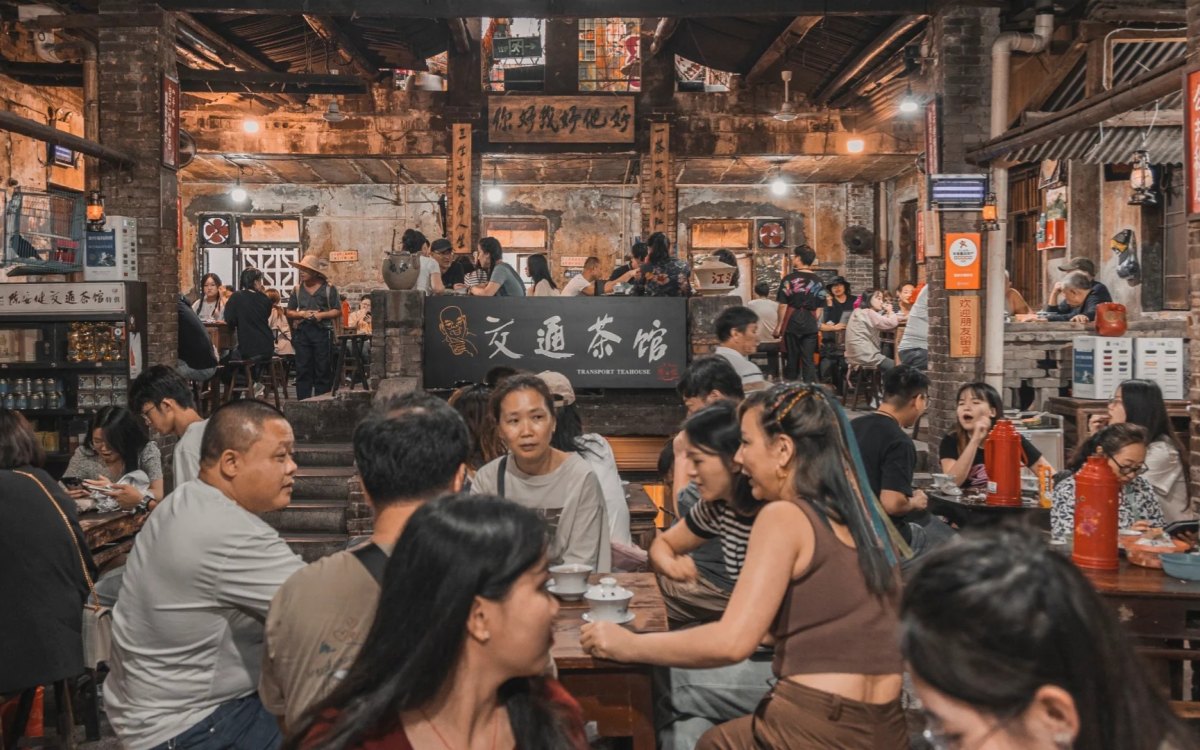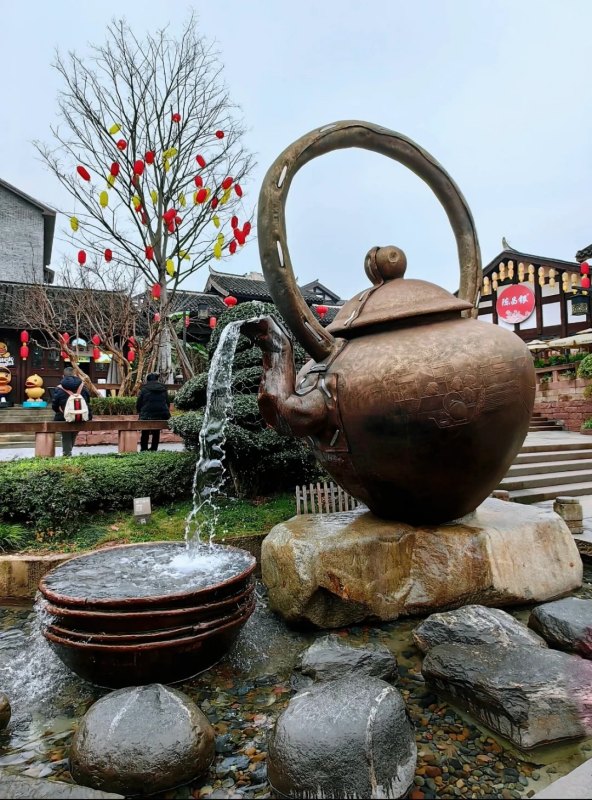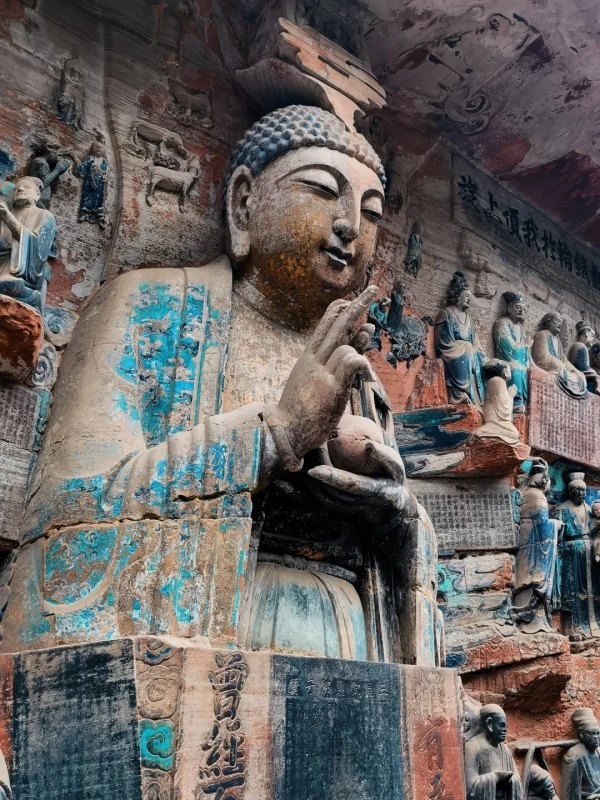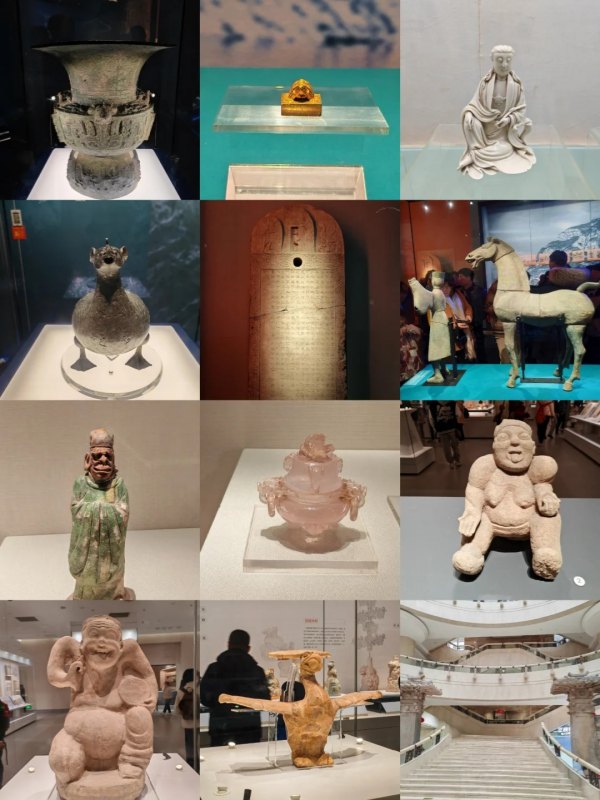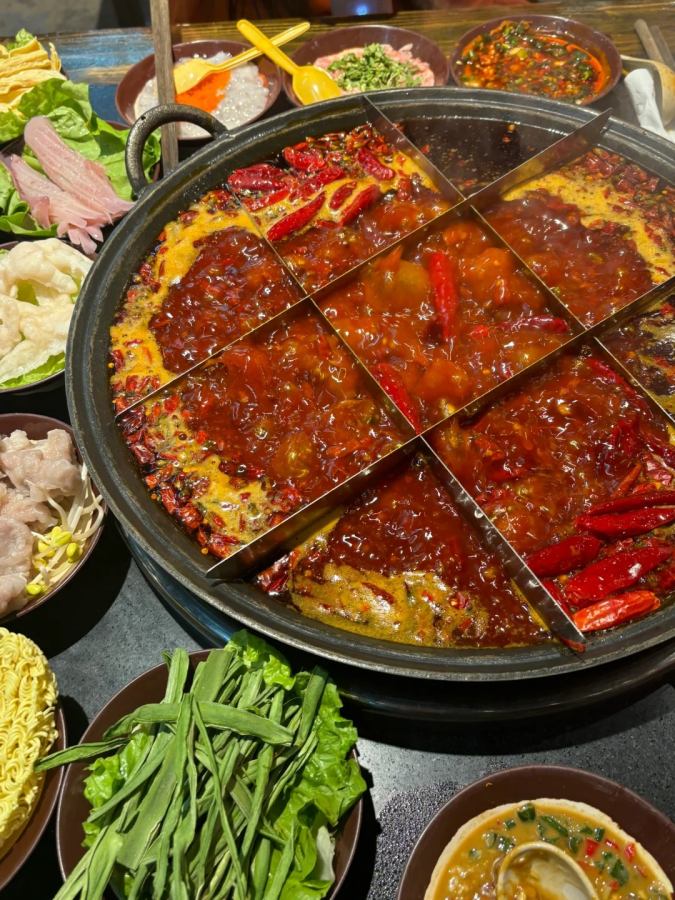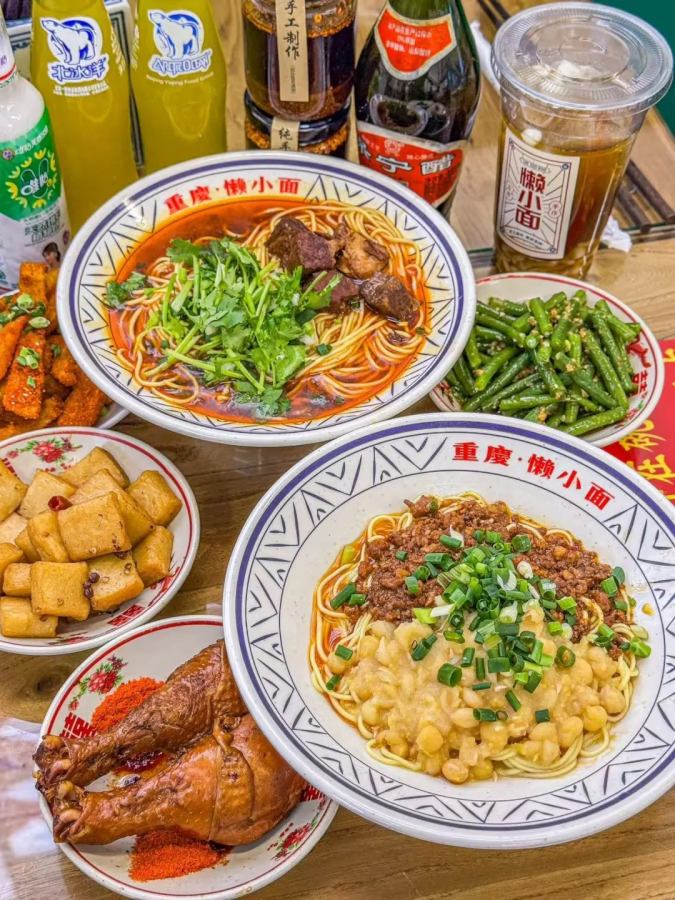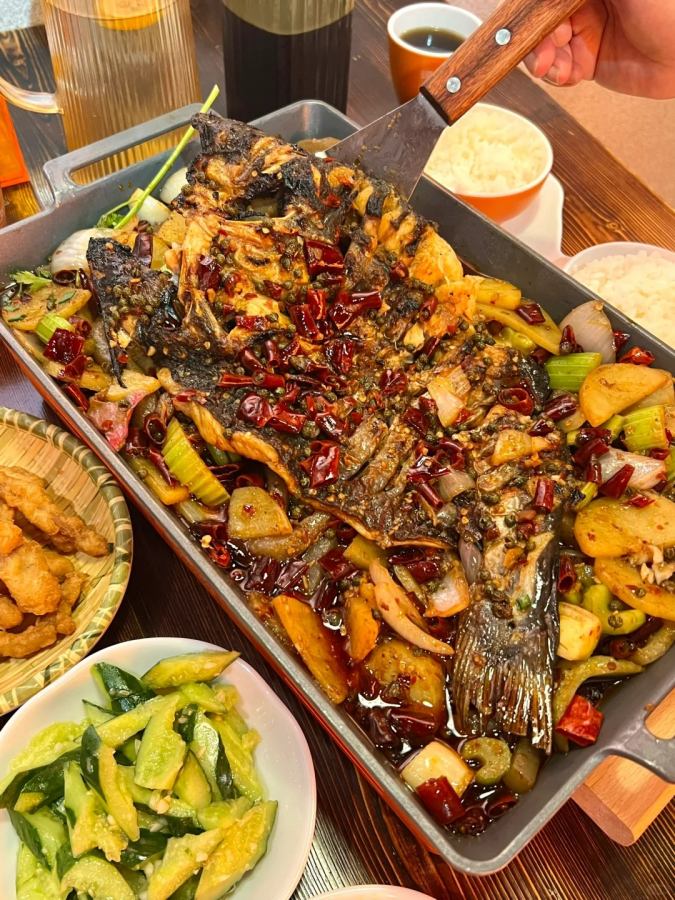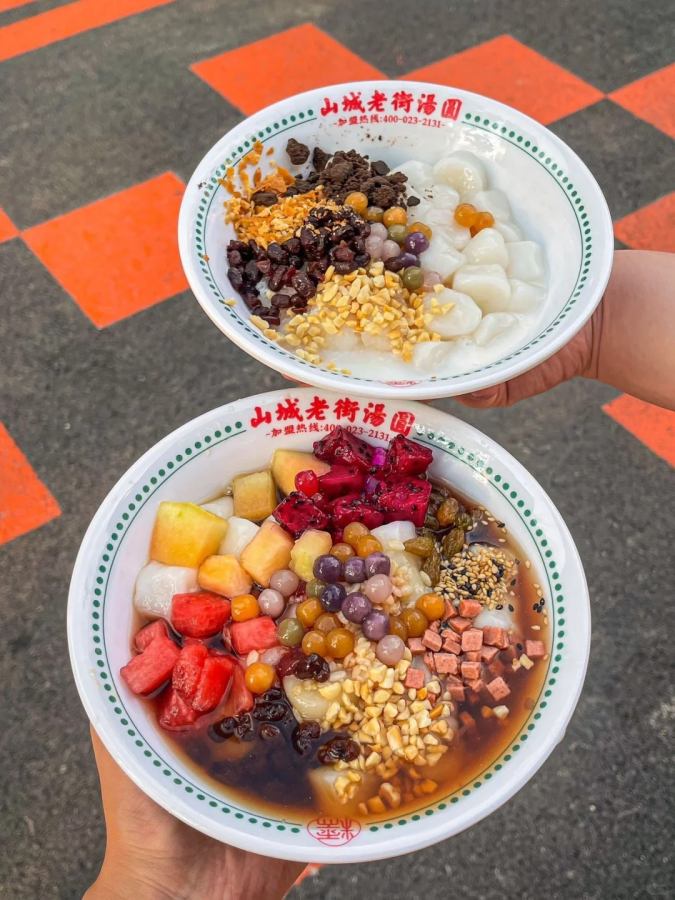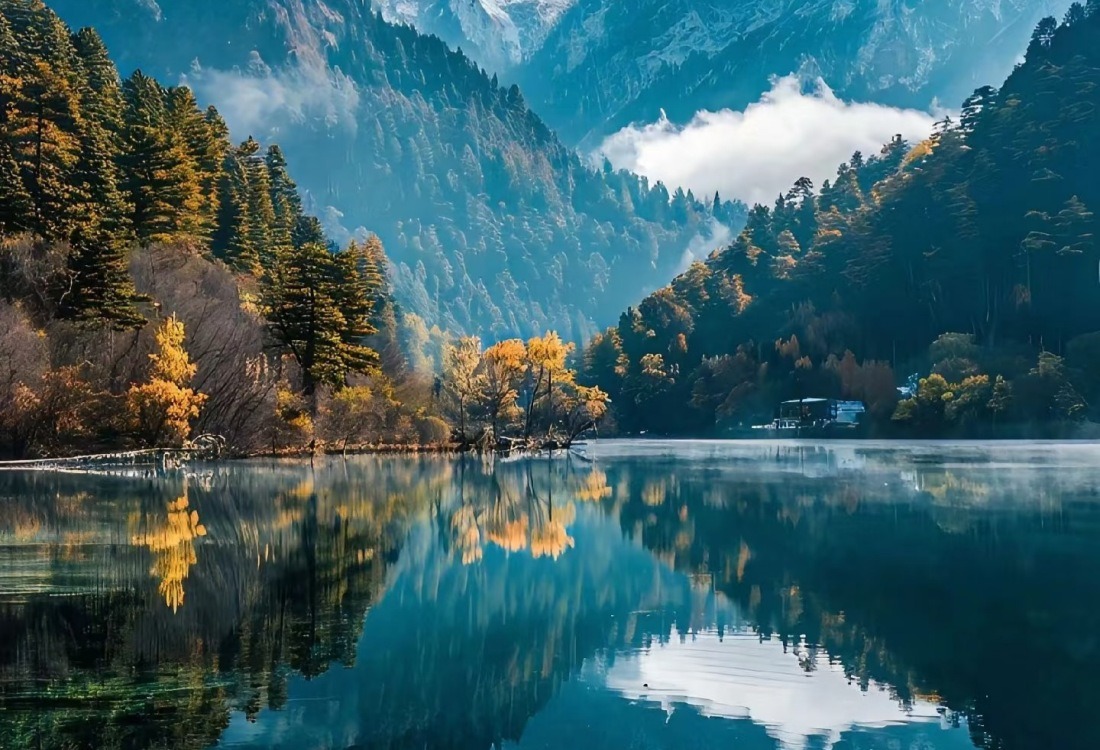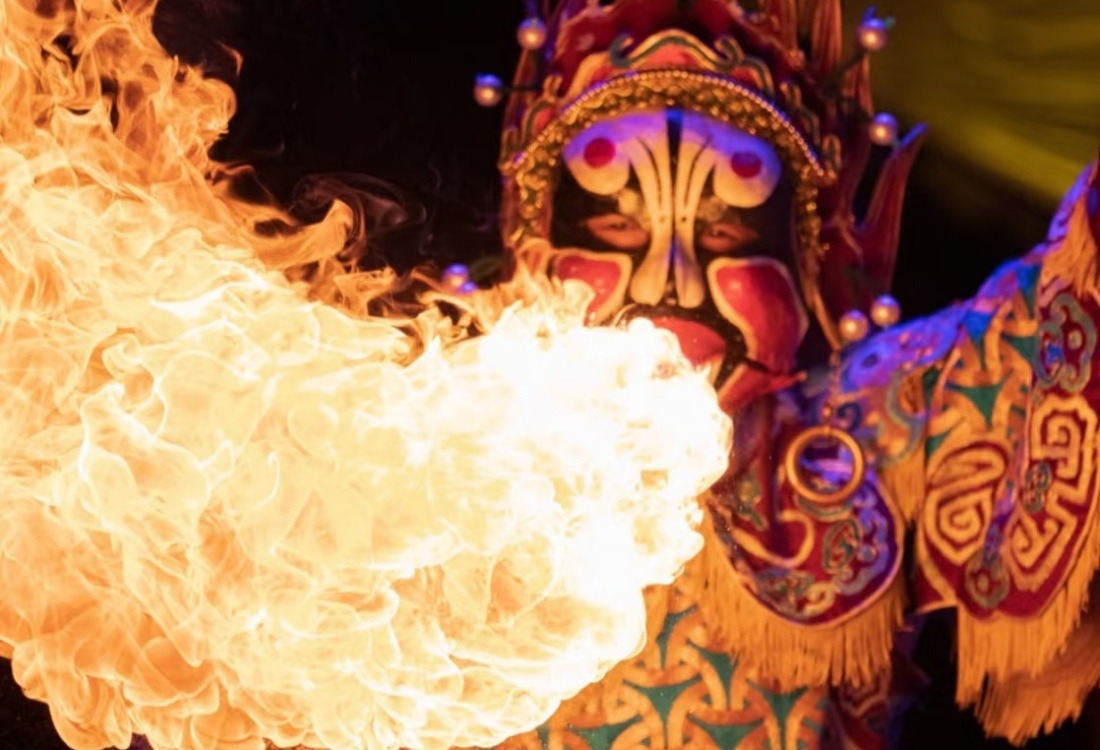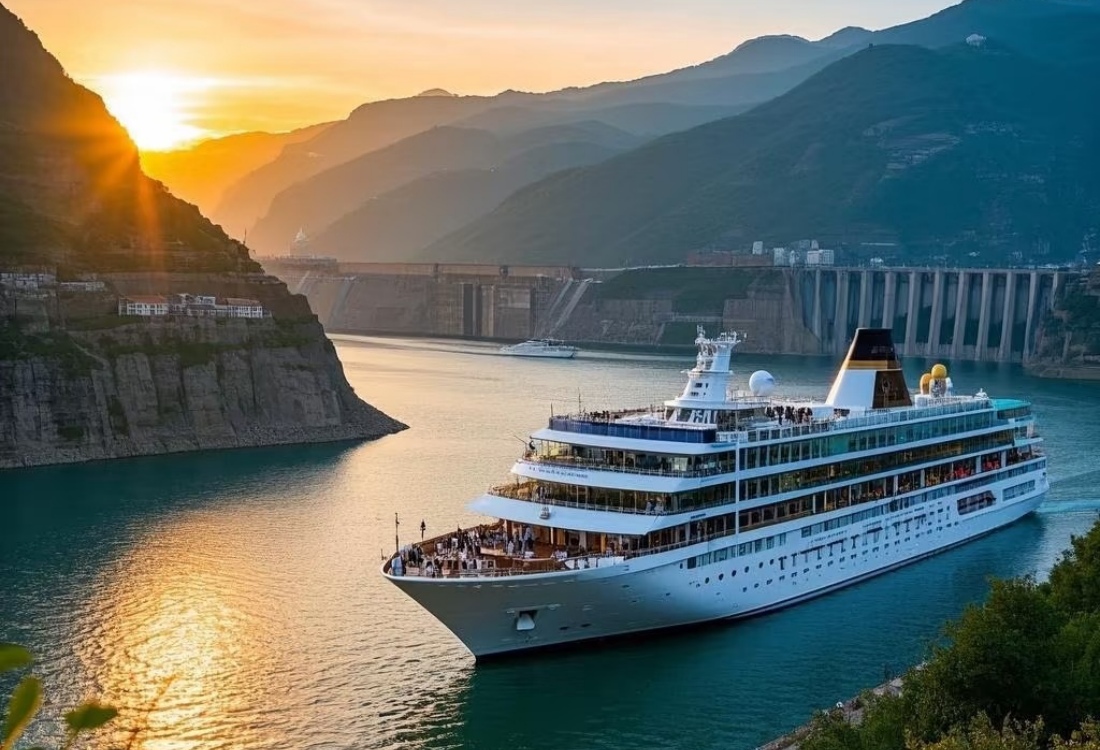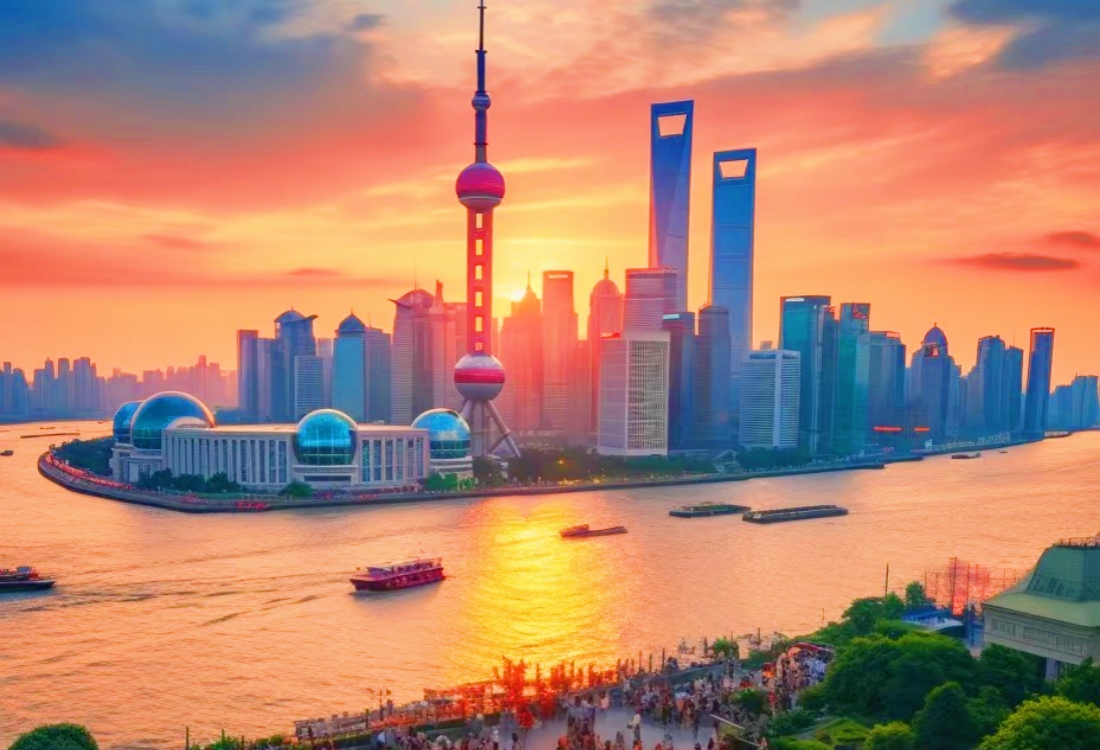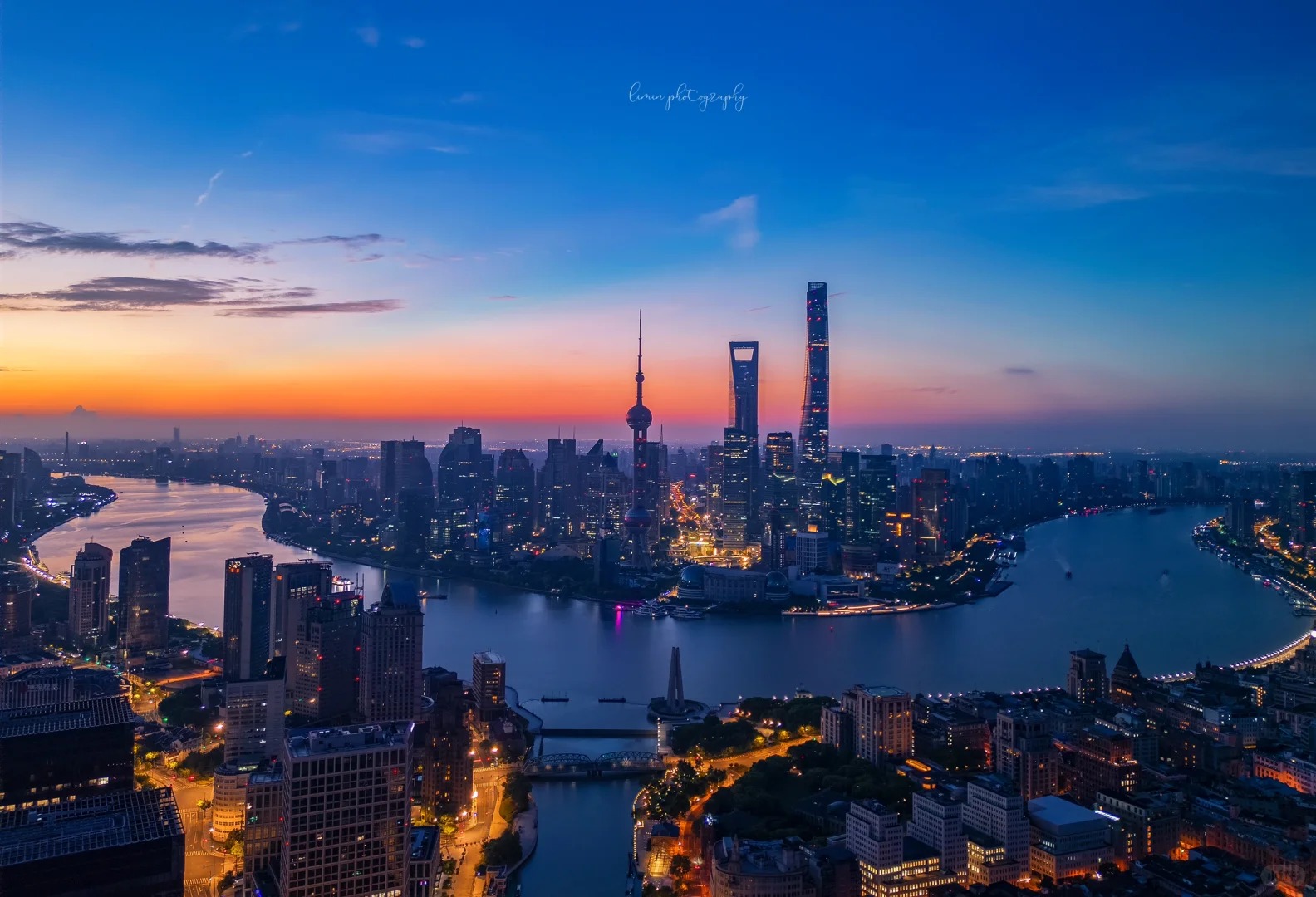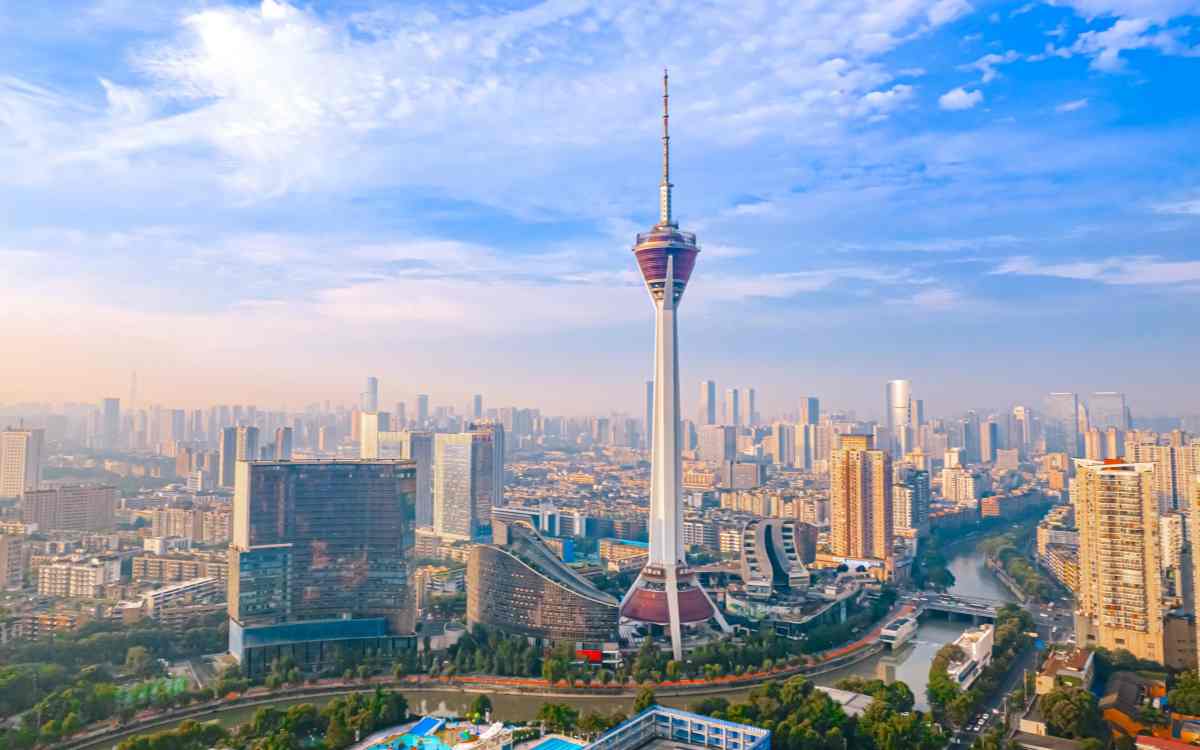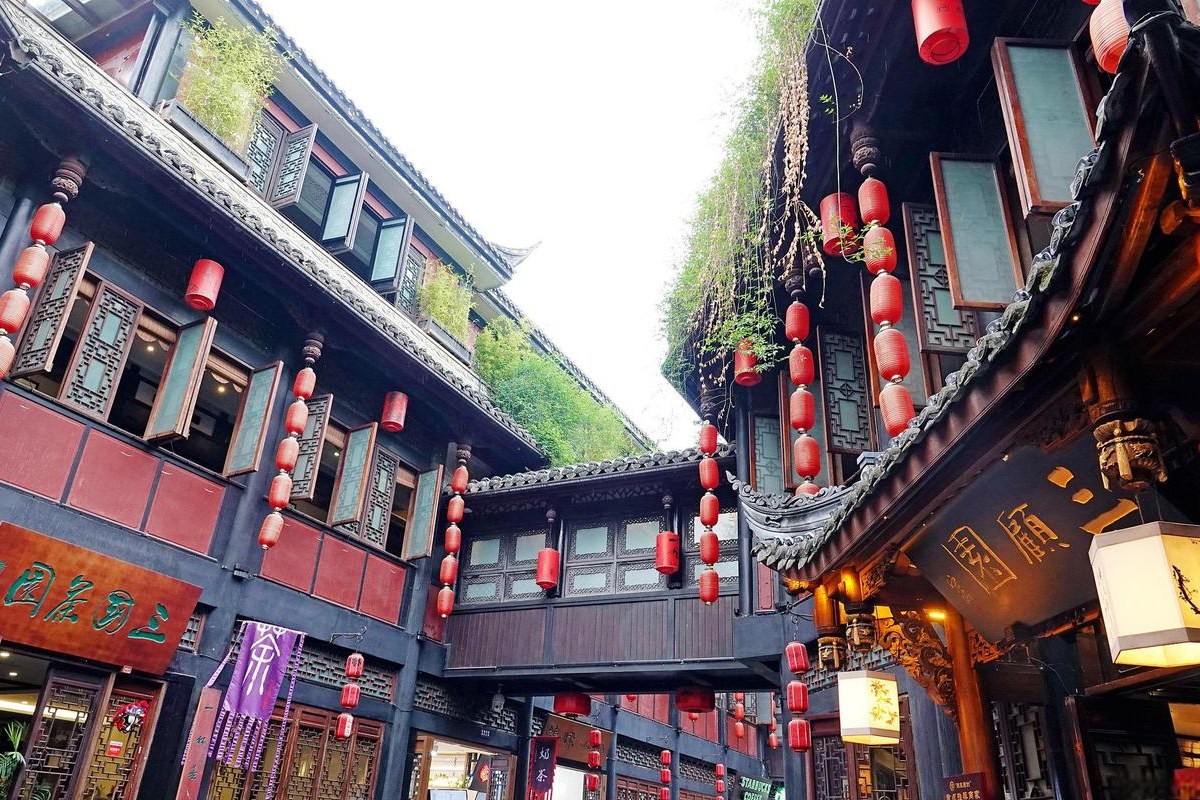Table of Contents
Toggle1. Discover Chongqing’s Rich Cultural Tapestry
Chongqing is a city steeped in history, offering visitors a chance to step back in time and explore its profound cultural heritage. From ancient towns to magnificent artistic achievements, the city’s past is vividly preserved.
Ciqikou Ancient Town: A Stroll Through Time
Step into the bustling Ciqikou Ancient Town and feel the pulse of old Chongqing. With origins dating back over a thousand years, this charming town showcases traditional architecture, primarily from the Ming and Qing dynasties. You can wander along its narrow, stone-paved streets, browse through an array of shops selling local crafts, artwork, and souvenirs, or relax in one of the many traditional teahouses. Don’t forget to sample some local snacks offered by street vendors. It’s a lively place that offers a genuine glimpse into the city’s historical way of life. Entry is typically free, and it’s easily accessible via Chongqing’s metro system.
Dazu Rock Carvings: UNESCO’s Sacred Art
A journey to the Dazu Rock Carvings is a must for art and history enthusiasts. This UNESCO World Heritage site, located a couple of hours from Chongqing city, features an exceptional series of religious sculptures and carvings, dating primarily from the 9th to the 13th centuries. The carvings are renowned for their aesthetic quality, rich diversity of subject matter (predominantly Buddhist, but also Taoist and Confucian influences), and the light they shed on everyday life and beliefs during that period. The most famous sites are Baodingshan and Beishan, where you can witness thousands of meticulously carved figures, some impressively large. It’s a profound artistic and spiritual experience.
Three Gorges Museum: Unveiling Regional History
Located in the heart of Chongqing, the Three Gorges Museum offers comprehensive insights into the history and culture of the Three Gorges region and the city itself. It houses a vast collection of artifacts, including ancient art, historical relics, and exhibits detailing the monumental Three Gorges Dam project. You can learn about the geological formation of the Yangtze River, the communities that have lived along its banks for millennia, and the impact of the dam. The museum provides valuable context for any visit to Chongqing and the surrounding areas. Entry is often free, making it an accessible cultural stop.
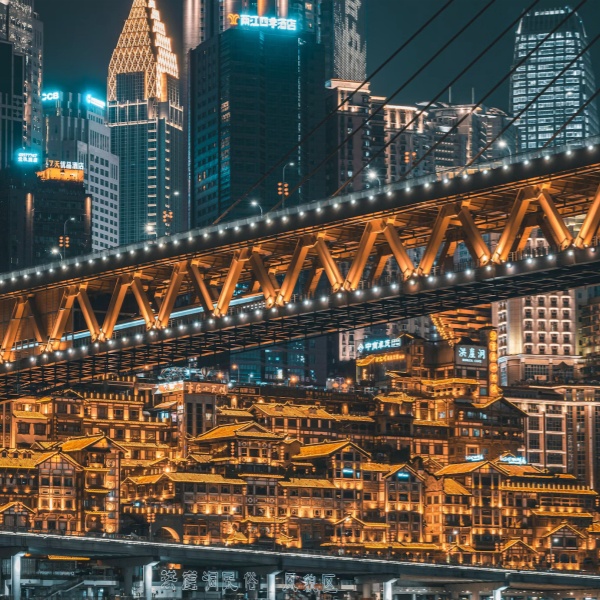
3 Days Chongqing Classic Tour: Downtown City and Dazu Rock Carvings
2. Immerse Yourself in Chongqing’s Natural Wonders
Chongqing’s dramatic topography, characterized by mountains and rivers, provides a stunning backdrop for outdoor adventures and exploration of natural beauty.
Majestic Yangtze River Cruises: Journey Through the Gorges
Chongqing is a major starting point for iconic Yangtze River cruises. These multi-day journeys (typically 4-5 days) take you through the breathtaking Three Gorges – Qutang, Wu, and Xiling. You’ll witness towering cliffs, serene waters, and significant historical sites along the riverbanks. A highlight for many is passing through the locks of the massive Three Gorges Dam, an incredible feat of modern engineering. Cruises offer a relaxing way to experience some of China’s most spectacular natural scenery.
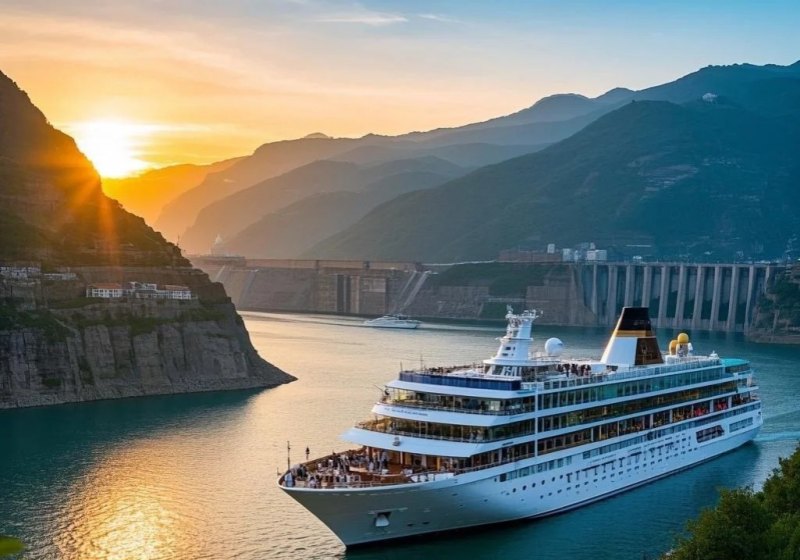
Wulong Karst National Geology Park: Nature’s Masterpiece
A few hours’ drive from Chongqing, the Wulong Karst National Geology Park is another UNESCO World Heritage Site, celebrated for its stunning karst formations. The park’s most famous attractions include:
The Three Natural Bridges (Tian Sheng San Qiao)
These are a series of enormous natural limestone bridges arching over deep gorges, creating a truly awe-inspiring landscape. Walking beneath these colossal structures feels like stepping into another world. This location has even served as a backdrop for major films.
Furong Cave (Hibiscus Cave)
This vast limestone cave system is filled with an incredible variety of stalactites, stalagmites, and other speleothems, brilliantly illuminated to showcase their beauty. It’s a fascinating underground adventure.
The Wulong area offers excellent opportunities for hiking, photography, and simply marveling at the power of nature.
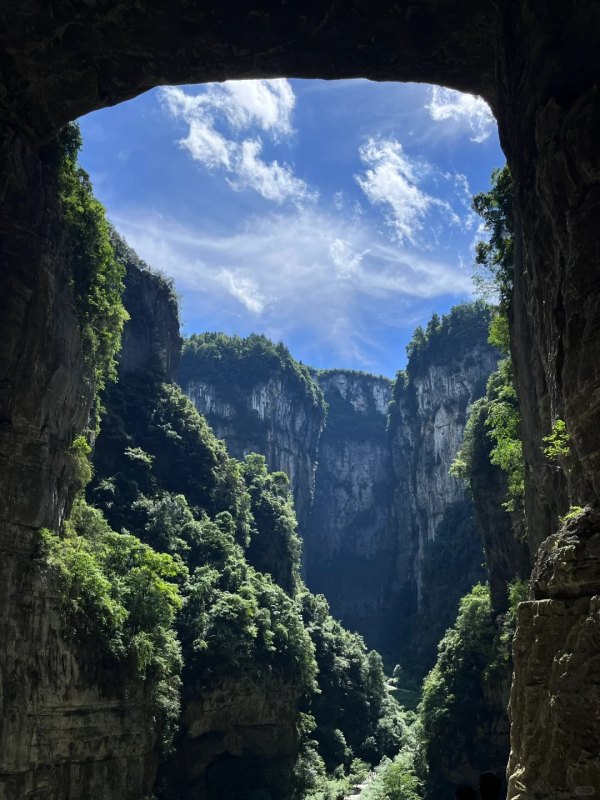
Eling Park: An Urban Oasis
For a nature escape without leaving the city, Eling Park (Erling Park) offers a peaceful retreat. Perched on a high hill, it provides panoramic views of the confluence of the Yangtze and Jialing Rivers, as well as the Chongqing peninsula. The park features traditional Chinese gardens, winding paths, and the Liangjiang Pavilion, an excellent vantage point. It’s a great spot for a relaxing walk and to see the city from a different perspective.
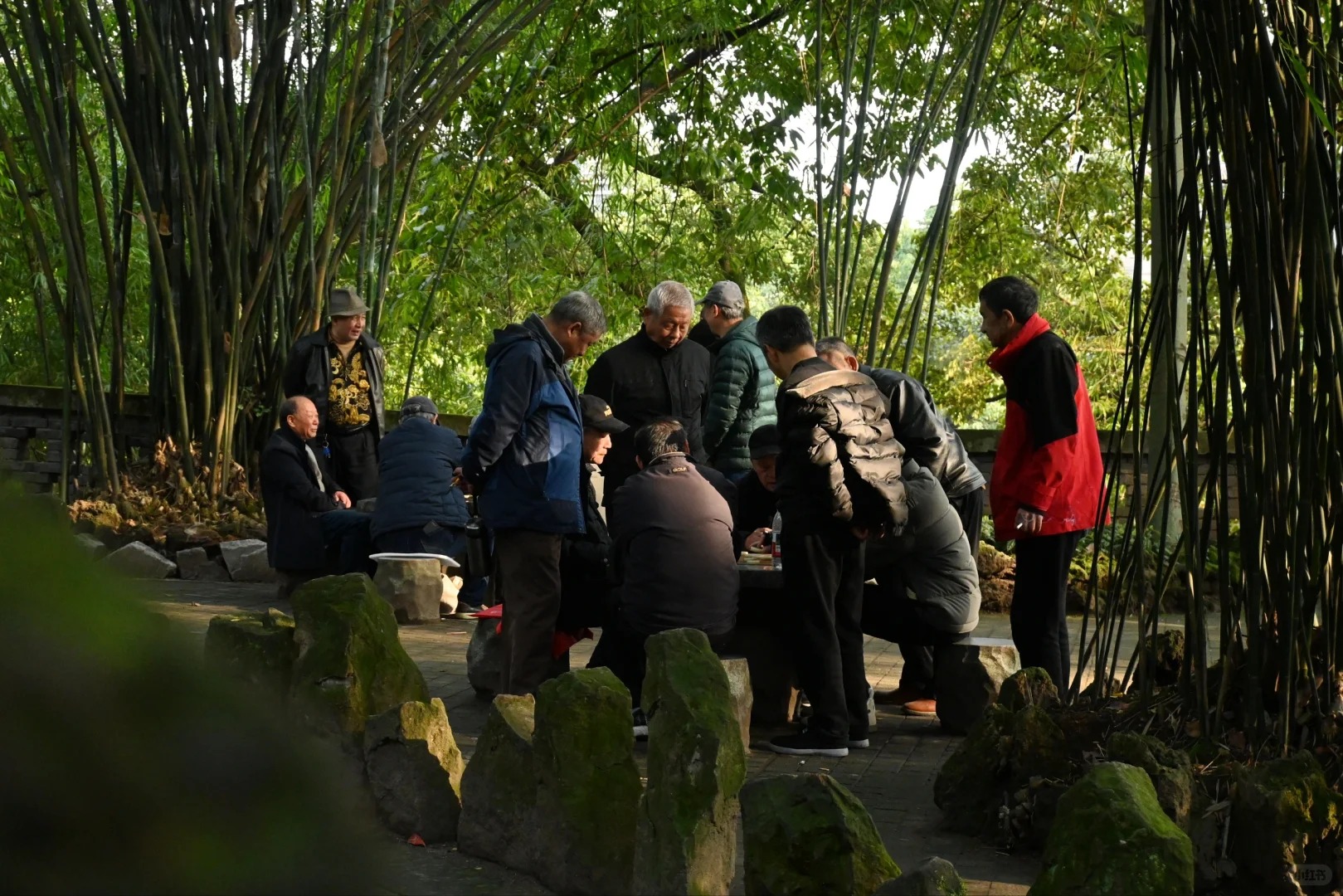
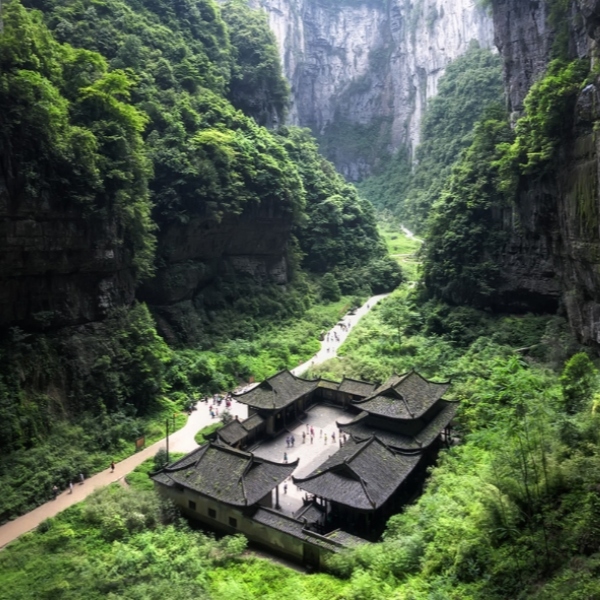
2 Days Chongqing Adventure Tour : Downtown City and Wulong Karst Geological Park
3. Experience the Dazzling Spectacle of Chongqing’s Night Views
Chongqing truly comes alive at night. Its hilly terrain and riverside location create a multi-dimensional urban landscape that, when illuminated, transforms into a breathtaking panorama of lights, earning it the nickname “Mountain City” or “Little Hong Kong.”
Hongya Cave: A Fairytale Illuminated
Hongya Cave (Hongyadong) is perhaps Chongqing’s most iconic night-time attraction. This sprawling complex of stilt-style wooden buildings is built along a steep cliff face overlooking the Jialing River. At night, it’s brilliantly lit with golden lights, resembling a scene from a fantasy movie (many say it looks like a building from Studio Ghibli’s “Spirited Away”). You can wander through its bustling lanes filled with shops, restaurants, and teahouses, all while enjoying stunning views of the illuminated city and river. It’s free to enter and becomes particularly magical after sunset.
Spectacular City Panoramas: Best Viewing Spots
Chongqing offers numerous vantage points to appreciate its dazzling nightscape.
Nanshan Mountain & WFC-Huixianlou
For a bird’s-eye view, head to Nanshan Mountain on the south bank of the Yangtze. The “Yi Ke Shu” (One Tree) viewing platform here is famous for its panoramic vistas of the entire Yuzhong Peninsula. Another popular spot is the WFC-Huixianlou Observation Deck, one of the tallest buildings in western China, offering a 360-degree view of the city’s glittering lights.
Night River Cruises: A Different Perspective
Taking a night cruise on the Yangtze or Jialing River offers a unique and enchanting way to see Chongqing’s skyline. As you glide along the water, you’ll be surrounded by the illuminated skyscrapers, bridges, and riverside attractions, including Hongya Cave. Many cruises depart from Chaotianmen Dock, where the two rivers meet.
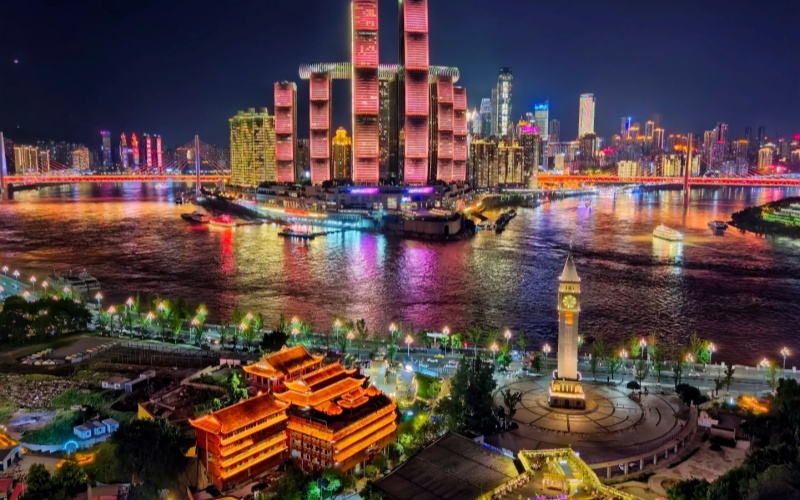
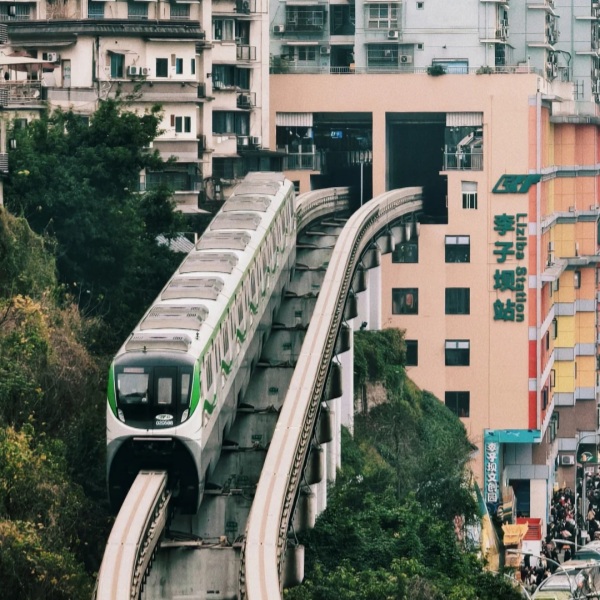
4 Days Chengdu & Chongqing Highlights Tour : Pandas & Hongya Cave
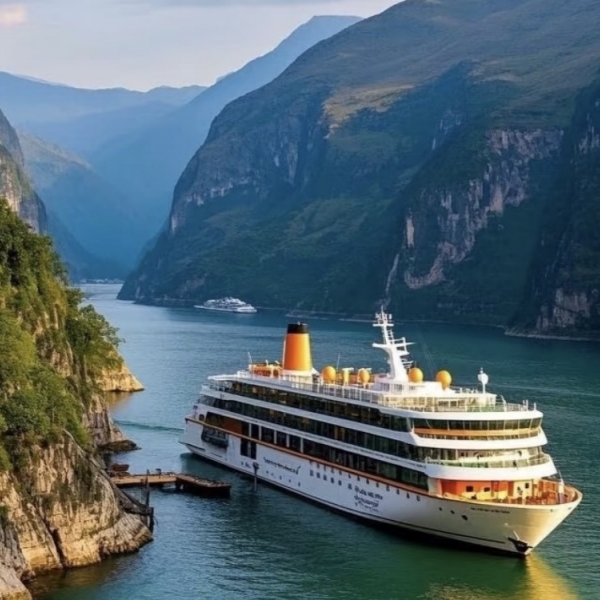
4 Days Chongqing City Tour with Yangtze River Cruise
Beyond its historical sites and natural beauty, Chongqing fascinates visitors with its incredibly unique urban landscape and vibrant local life, including its famous cuisine.
4. Navigating Architectural Marvels: The “8D Magic City”
Chongqing is often dubbed the “8D Magic City” due to its mind-bendingly complex urban layout. Buildings cling to steep hillsides, roads weave over and under each other in multiple layers, and public transport performs seemingly impossible feats. A prime example is the Liziba Metro Station for Light Rail Transit (LRT) Line 2, where the train passes directly through a residential building! Exploring these urban oddities is an adventure in itself and offers countless unique photo opportunities.
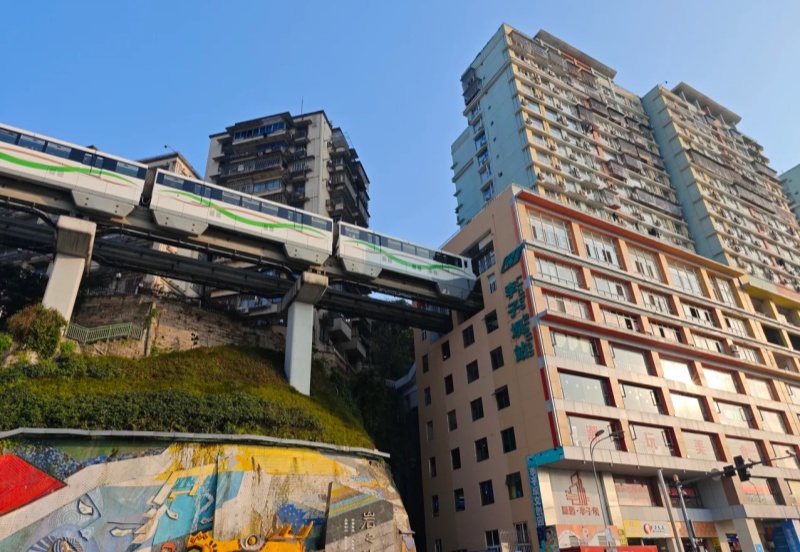
5. Culinary Delights: Savoring Chongqing’s Flavors
No trip to Chongqing is complete without indulging in its world-famous cuisine, especially the fiery Chongqing Hot Pot. This communal dining experience involves dipping various meats, seafood, vegetables, and tofu into a simmering, spicy broth. But there’s more to Chongqing’s food scene than just hot pot. Be sure to try local snacks and dishes.
Here’s a table highlighting some must-try culinary experiences in Chongqing:
| Food Item | Description | Why Try It? |
|---|---|---|
| Chongqing Hot Pot (Huoguo) | A simmering pot of spicy (or non-spicy) broth where you cook your own selection of thinly sliced meats, vegetables, mushrooms, tofu, and noodles. Often features Sichuan peppercorns for a unique numbing sensation. | It’s the quintessential Chongqing dining experience – flavorful, interactive, and a great way to socialize. A true taste of local culture. |
| Chongqing Small Noodles (Xiao Mian) | A simple yet delicious bowl of wheat noodles typically served in a spicy, savory sauce with various toppings like minced meat, peanuts, preserved vegetables, and green onions. | A beloved local breakfast or quick meal. It’s cheap, widely available, and offers an authentic taste of everyday Chongqing. |
| Spicy Grilled Fish (Kao Yu) | A whole fish, often carp or catfish, is grilled and then simmered in a flavorful, spicy broth with various vegetables, tofu, and sometimes noodles. | Aromatic, rich, and satisfying. It’s a popular dish for sharing and showcases the bold flavors of Sichuan cuisine. |
| Shancheng Small Glutinous Rice Balls (Tangyuan) | Small, chewy glutinous rice balls, often filled with sweet black sesame paste or other fillings, served in a lightly sweetened soup or dry. | A traditional dessert or snack, especially popular during festivals. They are comforting and offer a sweet contrast to the spicy main dishes. |
Travel Tips & Getting Around
Navigating Chongqing can be an adventure in itself, but a little planning goes a long way.
Getting Around
Chongqing has an extensive and efficient public transport system. The Chongqing Rail Transit (CRT), which includes both subway and monorail lines, is a great way to reach most major attractions. As mentioned, Line 2 offers the unique experience of passing through Liziba Station. Taxis and ride-hailing services are also widely available. Due to the hilly terrain and complex road network, allow extra time for travel.
Best Time to Visit
The best times to visit Chongqing are generally during spring (March to May) and autumn (September to November). During these seasons, the weather is relatively mild and pleasant, ideal for sightseeing and outdoor activities. Summers can be very hot and humid (Chongqing is one of China’s “furnace cities”), while winters can be cool and damp.
Frequently Asked Questions (FAQ)
What is Chongqing famous for?
Chongqing is famous for several things: its incredibly spicy Hot Pot cuisine, its stunning and unique “8D” urban landscape built on hillsides, breathtaking night views with illuminated skyscrapers and bridges, its role as a historic wartime capital, and as a gateway to the Yangtze River’s Three Gorges.
What is the best way to see the night views in Chongqing?
Some of the best ways include visiting Hongya Cave when it’s illuminated, taking a night cruise on the Yangtze or Jialing Rivers, or heading to an observation deck like Nanshan Mountain’s “Yi Ke Shu” platform or the WFC-Huixianlou Observation Deck for panoramic city views. Eling Park also offers good night views.
What food must I try in Chongqing?
The absolute must-try is Chongqing Hot Pot! Other highly recommended local specialties include Chongqing Small Noodles (Xiao Mian), Spicy Grilled Fish (Kao Yu), and for dessert, Shancheng Small Glutinous Rice Balls (Tangyuan).
How many days are enough for Chongqing?
To experience the main highlights of Chongqing city itself, 2 to 3 days are generally sufficient. If you plan to visit outlying attractions like the Wulong Karst Park or the Dazu Rock Carvings, or take a longer Yangtze River cruise, you would need to allocate more time accordingly (e.g., an extra day for Wulong or Dazu, and 3-4 extra days for a cruise).

